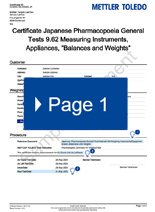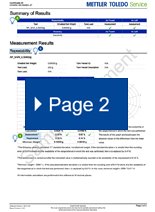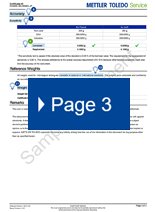This certificate documents the assessment of your instrument against the requirements stipulated in the JP General Chapter 9.62 requirements for repeatability and accuracy and the required acceptance criteria.
Please find details below on how to read the certificate page by page and to gain further insights into the testing that will be conducted.








